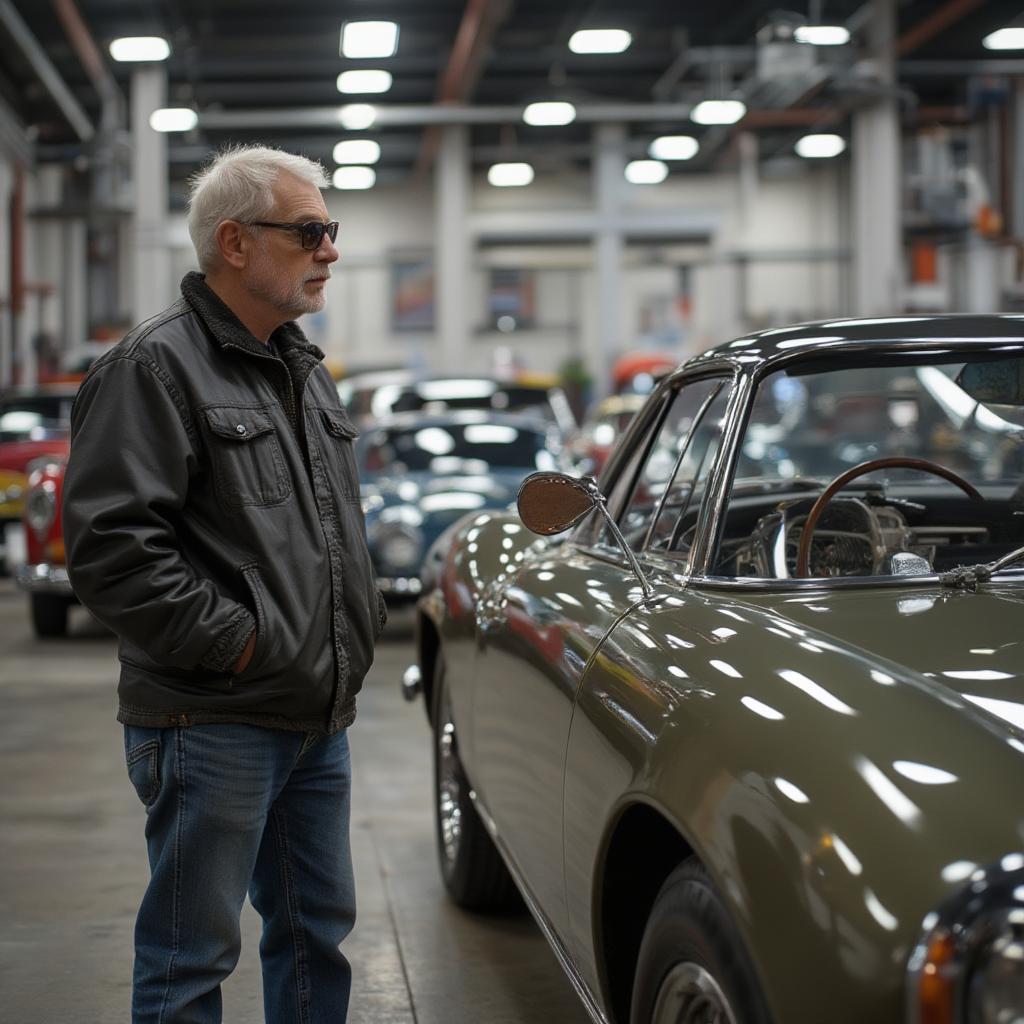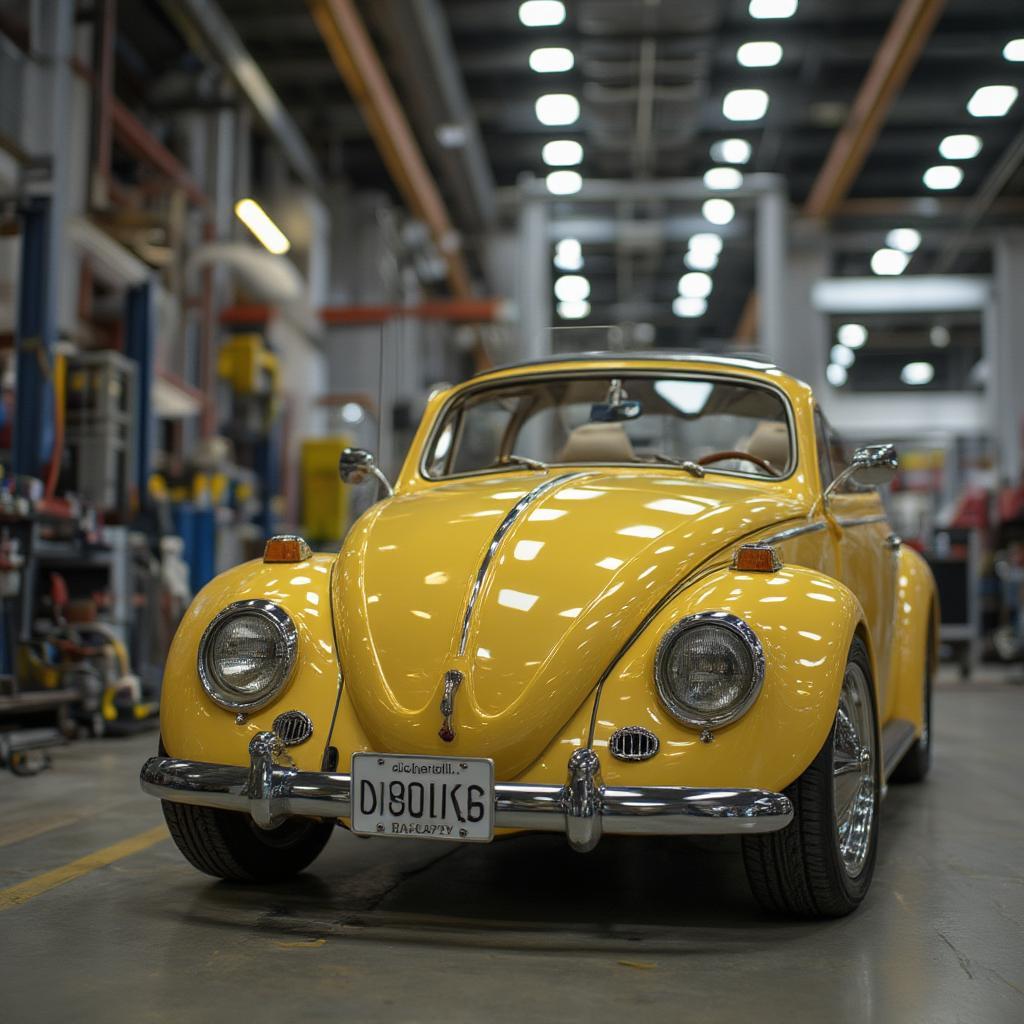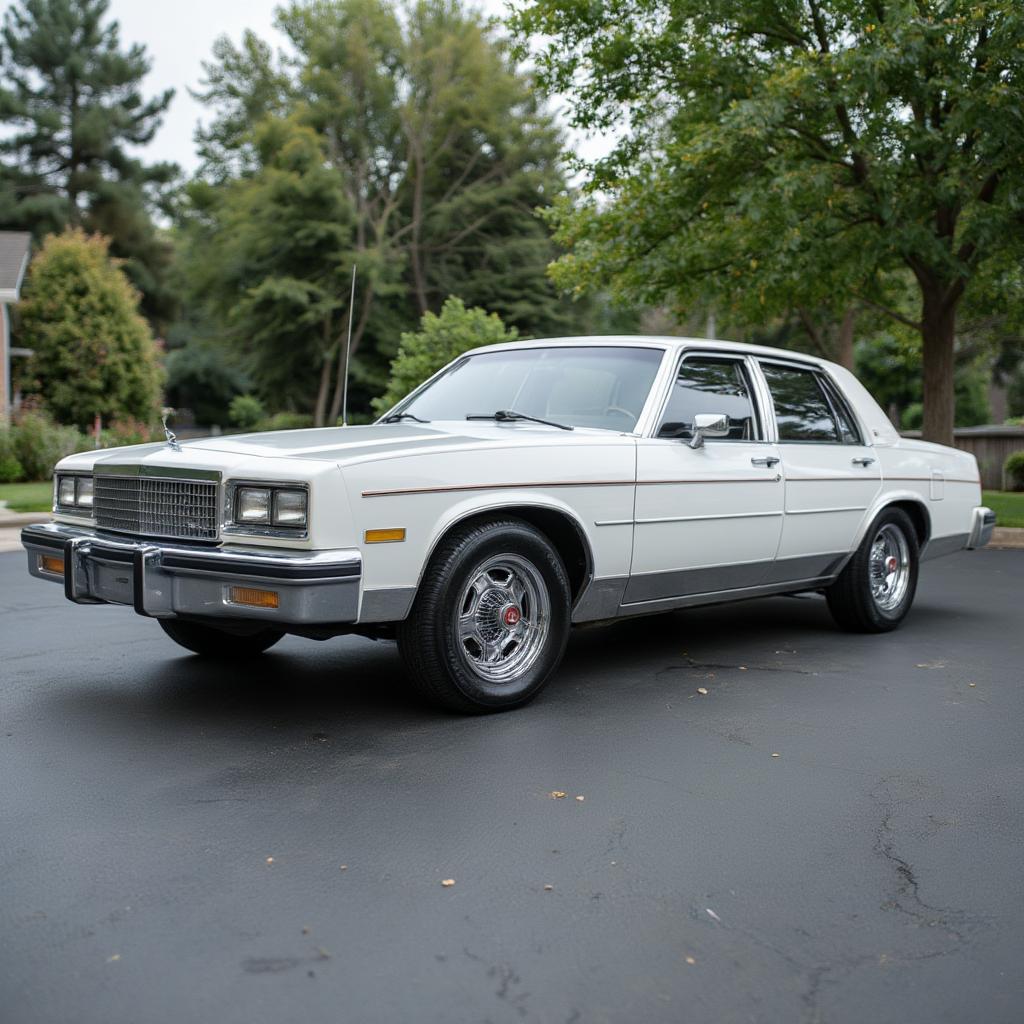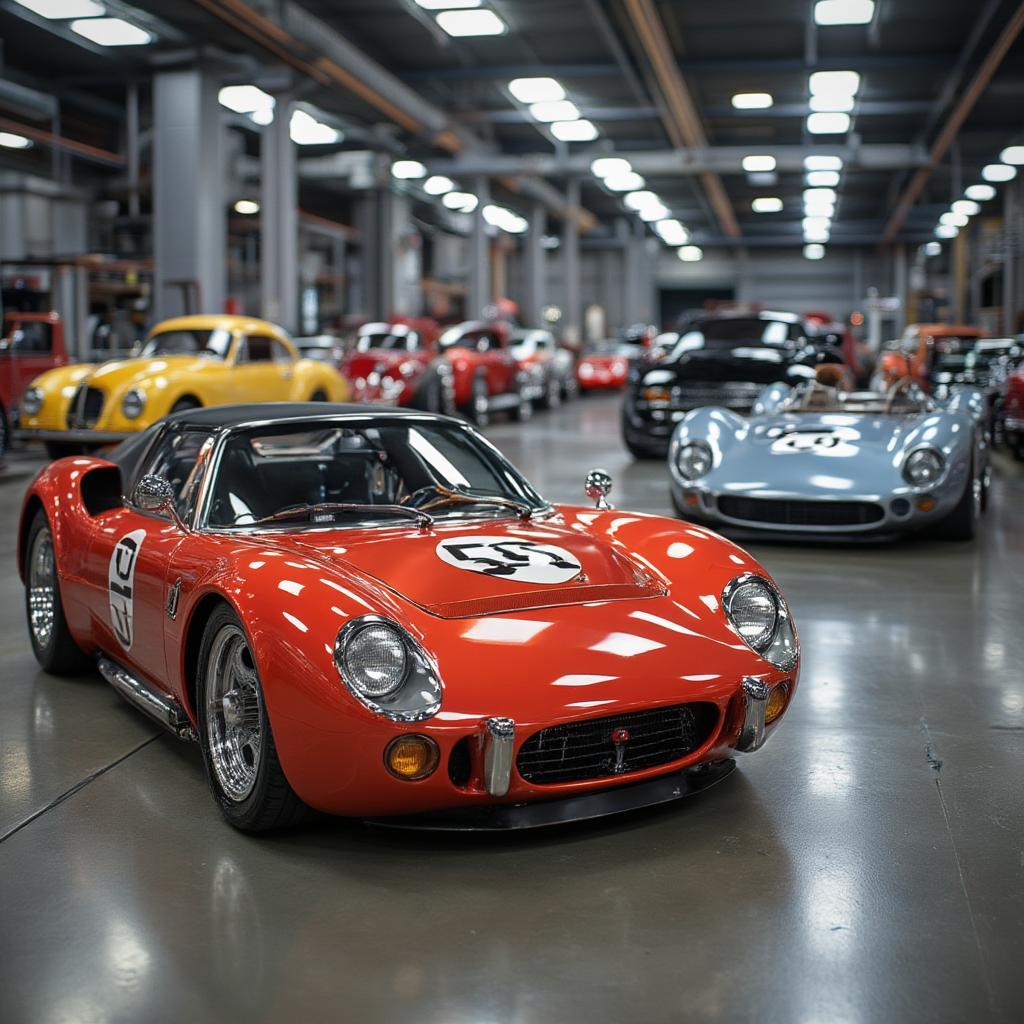Finding the Best Classic Car Insurance: A Collector’s Guide
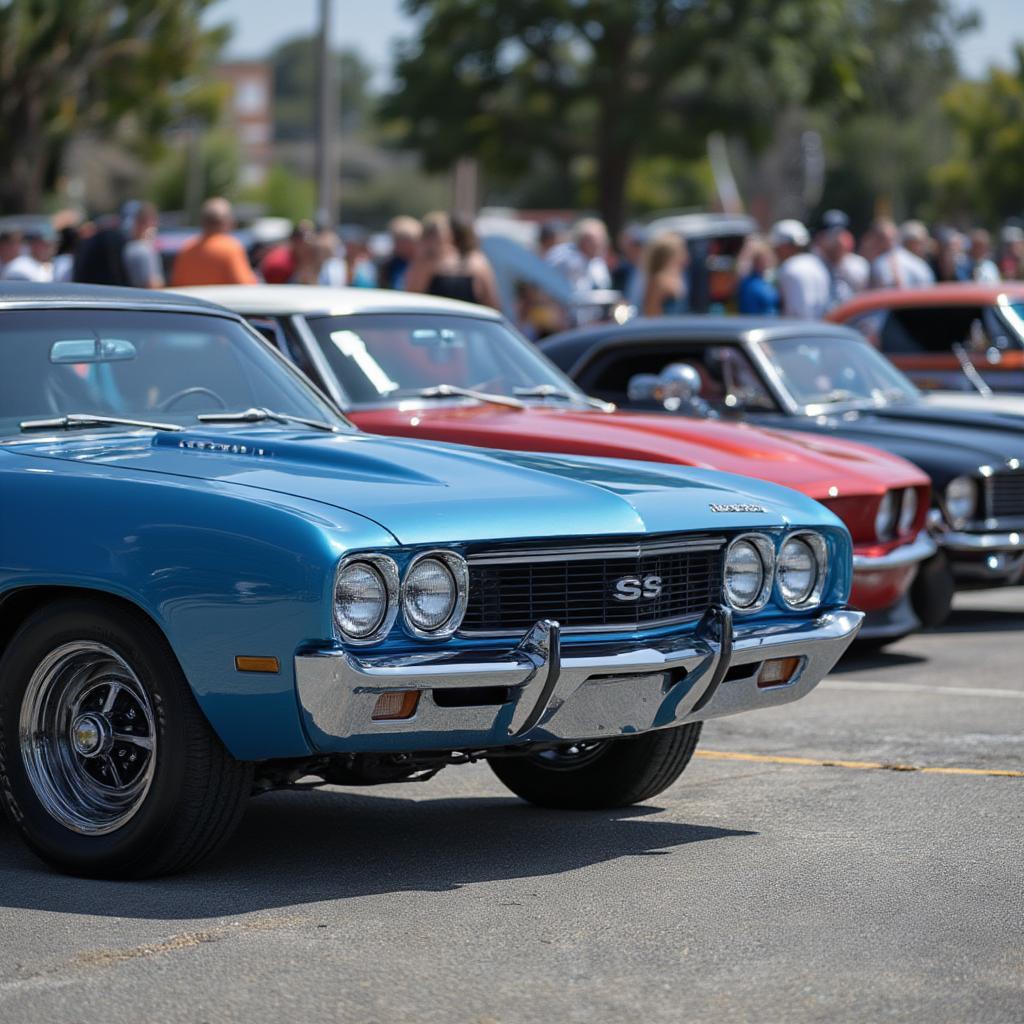
Securing the right insurance for your classic car is paramount, it’s not just about fulfilling legal obligations, it’s about protecting your valuable investment and passion. Finding The Best Classic Car Insurance requires a different approach than standard auto policies due to the unique nature and value of these vehicles. This comprehensive guide will delve into the nuances of classic car insurance, ensuring your prized possession is adequately covered.
Understanding classic car insurance begins with recognizing why it’s different. Unlike modern vehicles, classic cars often appreciate in value over time. Standard auto insurance policies typically cover the depreciated value of a vehicle, which isn’t appropriate for classics. This is why you need a policy specifically designed for your vintage beauty. What factors should you consider when choosing classic car insurance? Let’s explore some of the key components. One crucial aspect is agreed value coverage, which means the insurer agrees to pay a specific amount in the event of a total loss, reflecting the true market value of your car. This differs from actual cash value (ACV), commonly found in standard policies.
What is the difference between ‘agreed value’ and ‘actual cash value’ coverage? Actual cash value takes depreciation into account. Imagine a pristine 1967 Mustang, valued at $80,000. If insured under an ACV policy, you might only receive a fraction of that if totaled, even if you invested heavily in restoration. Agreed value, on the other hand, guarantees the full $80,000 payout in case of a total loss, less any deductible. This is a critical distinction for classic car owners, making best agreed value car insurance a must-have.
Why is Specialized Classic Car Insurance Necessary?
Classic car insurance policies are often cheaper than standard policies for several reasons. Firstly, classic cars are generally driven less frequently, often for pleasure rather than daily commuting, thus reducing risk. Secondly, these policies recognize that owners tend to be meticulous about maintenance and storage, further mitigating the risk of accidents. Most providers also offer flexible usage options tailored to car shows, weekend drives, and occasional rallies. Finally, classic car enthusiasts are typically more careful and respectful of their vehicles. The result is lower premiums, alongside specialized coverage.

“Having insured numerous classic vehicles over the years,” says renowned automotive historian, Dr. Eleanor Vance, “I’ve seen first-hand how crucial it is to get the correct policy, one that understands the nuances of the classic car world. Agreed value is non-negotiable for serious collectors.”
What Does a Good Classic Car Insurance Policy Cover?
A comprehensive classic car insurance policy includes several crucial elements:
- Agreed Value Coverage: As previously discussed, this is non-negotiable for classic cars.
- Liability Coverage: Protecting you from financial loss in case of an accident where you’re at fault.
- Comprehensive Coverage: This safeguards against damages not caused by collisions, such as theft, vandalism, fire, or acts of nature.
- Uninsured/Underinsured Motorist Coverage: Protection if you’re hit by a driver who lacks insurance or sufficient coverage.
- Spare Parts Coverage: Important for collectors who keep spare parts, this covers the value of your parts inventory.
- Towing and Roadside Assistance: Designed for classic vehicles, this service is usually more specialized than standard roadside assistance.
- Coverage during transport: Protection for your car when being transported on a flatbed or trailer.
- Optional Coverage: Coverage for tools and other related accessories you may have.
“The range of coverage matters, but so does the expertise of the provider,” comments insurance specialist, Johnathan Miller. “When looking for the best classic car insurance, ensure your agent understands the specific requirements of your vehicle and your needs.” It’s not just about getting the lowest price, it’s also about the depth of the coverage.
How to Find the Best Classic Car Insurance Company for You
Finding the right insurance company may seem daunting, but it can be made easier by knowing what to look for:
- Research: Explore several providers, read online reviews, and consider insurance broker. Don’t be afraid to get quotes from multiple companies, including companies like american family classic car insurance.
- Specialization: Opt for insurers who specialize in classic car insurance as they have the expertise and understanding. This includes their agents, adjusters and repair specialists.
- Agreed Value: Ensure that the policy offers agreed value coverage and not ACV.
- Coverage Options: Compare coverage options. Some companies may offer additional features, like car show coverage or coverage for parts.
- Reputation: Select an insurer with a positive reputation, with favorable online reviews and a good history of claims handling.
- Claims Handling: Evaluate the insurer’s claims process. Is it efficient, straightforward, and responsive? Do they have adjusters and specialists who understand classic car repair?

Are there any specific limitations in classic car insurance policies? Yes, most classic car insurance policies have limitations, including mileage restrictions. Some insurers may have rules around how and when you can use the car. Some policies may only allow you to drive the car on weekends, or for car shows. Always review policy limits carefully to ensure you are fully aware of what you are covered for.
Factors That Affect Your Classic Car Insurance Rates
Several factors influence the cost of your classic car insurance, including:
- Vehicle Value: Higher value classic cars typically have higher insurance premiums.
- Vehicle Type and Age: Rarity and condition of the car may impact premium prices.
- Usage: If the vehicle is only used for car shows, premiums tend to be lower.
- Location: Where the vehicle is stored plays a role. Garaged vehicles are often cheaper to insure.
- Driving Record: Insurers consider the driving history of the owner. Clean driving records result in better rates.
- Deductibles: Higher deductibles result in lower premiums, but be mindful that this means you’ll have more out-of-pocket expenses in case of an accident.
- Experience: If you have experience owning and maintaining classic cars, it may help.
- Club Memberships: Some insurers offer discounts for members of classic car clubs.
Understanding these factors can help you evaluate your options and make informed decisions. For instance, are you actively searching for classic car insurance near me? Location can significantly impact your premiums. Start your search and research the specific insurers in your area.
“Don’t underestimate the importance of detailed documentation and photography when you’re insuring a classic car,” advises Dr. Vance. “These can be critical to establishing the car’s true value if you ever have to make a claim.”
Maintaining Your Classic Car and Your Insurance
Maintaining your classic car not only preserves its beauty and value but also impacts your insurance. Regular maintenance, meticulous storage, and using a car cover can reduce the risk of damage, theft, and wear, potentially resulting in lower premiums. Insurers recognize that well-maintained classics are less likely to be involved in an incident.
When evaluating classic driver cars for sale, carefully consider the additional requirements for insuring a classic vehicle. Understanding what makes your vehicle a ‘classic’ will help you find a provider that will understand its value, and offer insurance that reflects that. It’s about more than a vehicle, it is about protecting an investment and a passion.
Tips for Saving on Classic Car Insurance
While insuring your classic car properly is paramount, there are ways to reduce premiums:
- Increase Your Deductible: Opting for a higher deductible can result in lower premiums, but be prepared for the higher expense should you make a claim.
- Limit Usage: If you drive it only for car shows or special events, you may qualify for reduced rates.
- Install Security Measures: Installing security systems, such as alarms or GPS trackers, may reduce theft risk.
- Join a Club: Membership in a classic car club may offer discounts.
- Shop Around: Don’t settle for the first quote. Compare multiple insurers.
- Maintain a Clean Driving Record: Be a responsible driver, as this helps to keep premiums down.
- Proper Storage: Keeping your vehicle garaged or covered reduces risk.
Conclusion
Finding the best classic car insurance involves understanding the unique characteristics of these vehicles and their owners. It’s more than a financial transaction, it’s a process of partnering with an insurer who appreciates your vehicle’s historical value and understands the passion behind owning a classic. Prioritize agreed value coverage, thorough policy comparison and diligent research to ensure you and your car are well protected. This will give you the peace of mind to fully enjoy your classic beauty. By carefully weighing your options and taking the necessary steps, you can confidently insure your classic car.
FAQs About Classic Car Insurance
1. What is the difference between classic car insurance and regular car insurance?
Classic car insurance is tailored for vehicles that are at least 20-25 years old and appreciate in value, offering agreed value coverage, lower premiums, and usage restrictions. Regular car insurance covers modern vehicles with depreciated value.
2. Is agreed value coverage always the best option?
For most classic car owners, agreed value is the best option because it guarantees the specific value of the car in the event of a total loss.
3. What happens if I total my classic car?
If you have an agreed value policy, the insurer will pay you the agreed upon value of the car (minus your deductible). If you have actual cash value coverage, they will pay the depreciated value.
4. Are there mileage limitations on classic car policies?
Yes, many classic car policies have annual mileage limits, often between 2,500 to 7,500 miles per year, due to the assumption that they are not being driven as daily drivers.
5. Can I get classic car insurance if I use my vehicle as a daily driver?
Most classic car insurers have restrictions on daily use. However, some may offer flexible options, albeit with higher premiums. If your car is your daily driver, you might be better off with a traditional auto policy or a specialty one.
6. Does my regular car insurance cover my classic car?
No. Regular car insurance policies aren’t designed for classic cars, they do not cover the potential increased value over time, so you need a specialized policy for the vehicle.
7. What do I need to provide the insurer to get a quote?
You will need detailed information about your car, including its make, model, year, condition, estimated value, usage, and storage details. You may also need photos of the vehicle, including all sides, and the interior.

